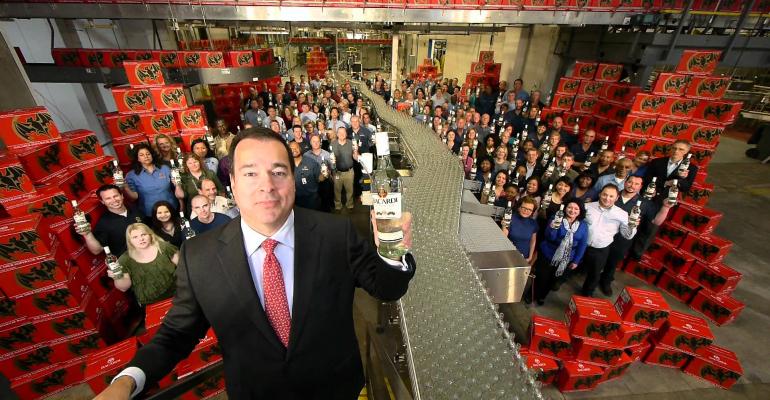(The author is a Reuters contributor. The opinions expressed are her own.)
By Cheryl Lu-Lien Tan
NEW YORK, March 28 (Reuters) - Facundo L. Bacardi had little interest in joining the family business, which happens to be the largest privately held spirits company in the world, with a portfolio of more than 200 brands, including Bombay Sapphire, Grey Goose and Dewar’s.
The great-great grandson of Bacardi company founder Don Facundo Bacardí Massó had other plans.
“When I was young, I wanted to be a lawyer,” he said. “When I got to my teens, I started thinking, “Boy, I'd really love to be a baseball player.”
As Bacardi got older, his family legacy began calling him. Now 50, he has been chairman of the board of Bermuda-based Bacardi Limited since 2005 and a director since 1993. He spoke with Reuters to share some of the life lessons he has learned from his family - and the family business - over the years.
Q: What did growing up watching the family business teach you about finances?
A: In 1960, the entire family left Cuba because all of their assets were appropriated by the Cuban government. The family had to come together and rebuild the company. The lessons I learned were of being very frugal and careful with your finances - that you could lose everything you had at any time, that anything you have could be taken away. We were so frugal, in fact, that we were pretty much a single-brand company from 1862 until 1992 (when Bacardi acquired General Beverage, which owns the Martini & Rossi group).
Q: What changed to make you want to be a part of your family business?
A: It wasn't really something I thought about until my grandfather passed away (when Facundo Bacardi was 16). I felt that I really needed to step up. I wanted to make sure that my family was well-represented, and I wanted to continue growing the business so future generations could enjoy it. I have four daughters - hopefully they'll have children, and we'll all continue to grow the business.
Q: What did your first jobs teach you?
A: I pumped gas at a gas station - I was 14. Then I was a dishwasher at a restaurant - I was 15. Then I became a busboy at some rundown restaurant. All three of them embedded in me something that I still remember to this day: You've got to work hard. And that people who get ahead in life, it isn’t just because they're smart - it's also because of opportunities. I worked with good friends, some had good opportunities while others really didn't have opportunities, and their paths diverged. I saw how quickly somebody can go from having something to having nothing.
Q: What money lessons are you passing down to your own four daughters (ages 5 to 15)?
A: It's really about saving - we opened a savings account for my oldest (when she was 13) a couple of years ago. I try to tell them if you earn X dollars, this is what the difference is between gross and net, that if you save well and invest well, you'll be able to have a more comfortable life than if you're spending everything and living paycheck to paycheck.
Q: How important to you is giving?
A: When you're fortunate, you should give back - everyone should think about how to make the earth a better place as they spend time on it. The Bacardi family has a long history in Cuba and South Florida and wherever our companies are located, we try to give back.
For me, there are a few different areas I try to focus on: education, arts, the environment, and I also like historic renovations. In Cuba, once it’s completely open, I’d like to help renovate some of the existing older buildings.
(Editing by Beth Pinsker and Dan Grebler)






